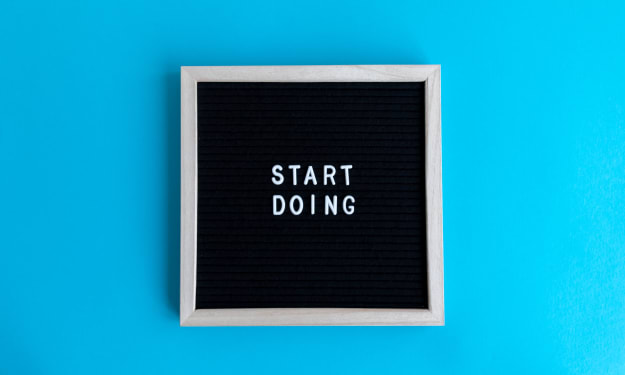Struggling with getting the job done?
Maybe this might help; try listening

Listening is an important part of communication. In fact, listening is often the most important part. If you listen well, you'll be able to understand what other people are saying and give them the feedback they need. If you don't listen well enough, though, there can be consequences: missed details that could lead to problems later down the road; miscommunications that lead to conflict and bad feelings; and more.
You might miss out on small details if you don't listen enough to the clues people give.
Next time you're talking to someone, try to listen as much as possible. Pay attention to what they're saying and how they say it. Listen for clues about their habits and preferences, how they feel about certain things, or whether or not they're interested in continuing the conversation.
It can be difficult for some people to know if they are listening well enough. The best way to improve is by practicing with your friends and family—and then start listening intently when you meet new people!
Repetition can be a clue that someone is trying to tell you something but is having trouble getting through.
If someone is repeating themselves, it can be a clue that they want to tell you something but are having trouble getting through. If someone keeps asking questions to get more information, they might not have been clear the first time they asked. If you find yourself getting defensive regularly, it's likely that you're not listening well.
Being able to control your emotional reactions allows you to put more of your attention towards what others are saying--rather than on how their words are making you feel.
If someone keeps asking you questions to get more information, they might not have been clear the first time they asked.
If someone keeps asking you questions to get more information, they might not have been clear the first time they asked. It’s important to respond with a question of your own that lets them know what additional details are needed. To do this effectively, come up with a list of questions that could be asked in response to your initial request and make sure each one contains at least three pieces of information:
If you find yourself getting defensive regularly, it's likely that you're not listening well
This will help clarify what kinds of reactions may be triggered by certain topics being brought up during conversation with others outside your relationship—and help identify areas where more work can go into improving communication skills!
Being able to control your emotional reactions is a sign of maturity and self-control. When we get upset, angry or sad, it's natural for us to react with a similar emotion back at the person who upset us (or even worse). However, this is not a good way of dealing with conflict resolution; in fact, it only makes things worse. The best way for someone who has been hurt by another person's actions is often just sitting quietly until they've calmed down before talking about what happened.
For example: if someone gets angry with another person because they're mad about something they did wrong (like forgetting an important event) then that other person might get defensive instead of apologizing sincerely like they should have done in the first place! This could lead them into arguing over whose fault it really was all along when really both sides need to just admit their faults and move on from there without any bad feelings getting involved at all!
Listening helps us understand others and be understood by others.
Listening is an important skill that helps us understand others and be understood by others. Listening also helps us be more effective communicators and leaders.
As a manager, you have to make sure your employees understand what they need to do their jobs well. You can't just tell them what needs to happen; you have to explain it in ways they can understand—and that means being a good listener! A good manager knows how important listening skills are when managing people, especially those who report directly to him or her.
When we listen carefully and take the time necessary for understanding another person's point-of-view, we create trust between ourselves and our colleagues or loved ones (and anyone else with whom we interact). This makes communication easier because there's no confusion about how one person perceives something versus how another person perceives it—we both know where each other stands on any given topic as well as why this is so important/unimportant from their perspective.
We've all heard stories about managers who don't listen well enough—they get in front of large audiences without really understanding what their audience needs out of the presentation; they forget what was said earlier during meetings so they ask questions again after 20 minutes; et cetera...
Conclusion
If you’re not listening well, it could be costing you in ways that go beyond the opportunity to connect with others. Without good listening skills, we miss out on important details about our lives and relationships. It can also lead us to feel frustrated and misunderstood as we try to get our needs met. Hopefully these tips have helped you understand more about why this is so important—and how simple it can be!
About the Creator
Esther Ami
Words are powerful and it matters how we use them. I use my words to build and impact, I use my words to lift and inspire. I am a words-person, I love words.






Comments
There are no comments for this story
Be the first to respond and start the conversation.